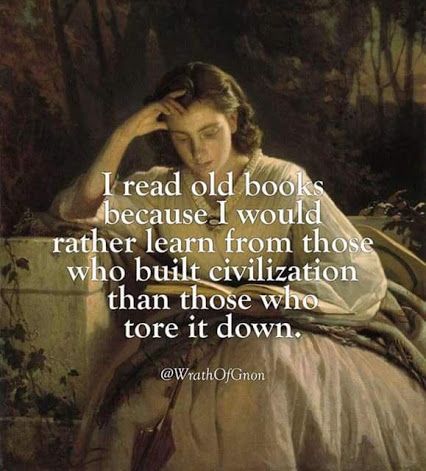SENSOR SWEEP: Access to the Canon, Chesterton’s Fence, Detox Symptoms, and Matters of Survival
Wednesday , 25, May 2016 Sensor Sweep Leave a comment Appendix N (The Arts Mechanical) Jim Baen And SF — “All that’s available in print and media Is stuff based on the same old tropes. It’s cookie cutter SFF without knowing the right recipes. Let alone what it takes to make a new recipe. All that’s left is rewinding the same old tropes. That’s been the real problem in SFF for some time now. I don’t really know why, but it seem that between the bookstores only stocking the newest and best selling and the Traditional publishers not keeping the classics in print, the new kids just don’t have the access to the canon of SFF that my generation enjoyed.”
Appendix N (The Arts Mechanical) Jim Baen And SF — “All that’s available in print and media Is stuff based on the same old tropes. It’s cookie cutter SFF without knowing the right recipes. Let alone what it takes to make a new recipe. All that’s left is rewinding the same old tropes. That’s been the real problem in SFF for some time now. I don’t really know why, but it seem that between the bookstores only stocking the newest and best selling and the Traditional publishers not keeping the classics in print, the new kids just don’t have the access to the canon of SFF that my generation enjoyed.”
Blogging (Russel Newquist) Why Blogging Works – Outbound Links — “Don’t be afraid to link back to other bloggers and news sources that you’re referencing. In the old days (circa 2005) this was common, and just considered ‘good manners.’ Too many bloggers have gotten away from it, thinking that they can keep the traffic and the credit to themselves. This is short sighted.”
AD&D (Don’t Split the Party) G.K. Chesterton’s Fence, AD&D 1e, and What Happens When You Don’t Understand What You Are Changing – A Varied Rant — “In 3e there was a decision to let any race be any class. Sure they tried to give a sop to things by saying some races were ‘better suited’ to certain classes, but especially for gnomes that changed around a bit, etc. When 4e came out I remember reading a statement from one of the designers about why gnomes had become ‘monsters’. He said [paraphrased] ‘Well, they were just a lot like dwarves and we really didn’t understand why anyone would play them or what they were for.'”
Traveller (Den of the Lizard King) What is Proto-Traveller? — “Proto Traveller is not necessarily a time period – as High Guard came in 1979, before the accepted 1980 ‘cut-off’ point – and not necessarily a “tight” set of rules. It is an attitude, a style if you will. It is Traveller in the spirit of the first three books of the original boxed set, as well as early adventures, JTAS articles, and supplements. That is – small ship, small setting, simple rules. I’d also argue that it has a focus on civilian or quasi-civilian (ex-military) play rather than strictly military settings and plots as suggested by the weapon list in Book 1 and as opposed to the mercenary unit play of Book 4, the huge-combatant naval play of Book 5, and the strict military fleet-building play of Trillion Credits Squadron.”
AD&D (Save Versus All Wands) “Imagine the Hell Out of It!” — “My point is that a perfectly reasonable sounding desire–why shouldn’t we know a bit more about these monsters and have pictures of them?–can in the end, especially by the time you get to even later editions, have unintended consequences. Consequences that are bad.”
 Appendix N (PC Bushi) Final Thoughts on the Grey Prince — “To change tack, I’m surprised that this story has slipped between the cracks of classic SFF. Perhaps this is in part due to the themes and social commentary that would no doubt be wildly out of favor today. Just judging from the Gray Prince, Vance appeared to have a disdain for urbanity. At the very least, he seemed to think city-dwelling socialites and academics to be naive and largely unprepared for the realities of the universe.”
Appendix N (PC Bushi) Final Thoughts on the Grey Prince — “To change tack, I’m surprised that this story has slipped between the cracks of classic SFF. Perhaps this is in part due to the themes and social commentary that would no doubt be wildly out of favor today. Just judging from the Gray Prince, Vance appeared to have a disdain for urbanity. At the very least, he seemed to think city-dwelling socialites and academics to be naive and largely unprepared for the realities of the universe.”
Video Games (Crixa Labs) What Firefall Was Supposed to Be — “To have a war, we needed something to fight over. Instead of having standard MMO zones restricted on leveling and with static quests that happened in the same place all the time, I wanted us to move to what I termed ‘time based domain’ gameplay. You see, up to this point, all MMOs were static and firmly attached to their locations in the world ‘geographically based gameplay.’ Even GW2’s dynamic events were the same things happening in the same places on the map. I wanted to move away from content being tied to physical places, to events that could unfold anywhere, with the AI adapting to whatever location it spawned into. This tech was deemed impossible at the time, but eventually we did it. Our system let us set up encounters and the server AI could ‘drop’ them anywhere on a map and dynamically find spawn points for everything and even change what enemies you’d fight depending on where the encounter happened and who was fighting. To me, this was essential for a simulated war that was truly dynamic – because I was building a war-game, not an MMO.”
Cutting Edge Sci-Fi (Pacific Standard) Daniel José Older and Progressive Science Fiction After Gamergate — “The genre has always contained, even celebrated, some elements of diversity: Octavia Butler and other African-American writers found vibrant inspiration for their science fiction in the ethos of Afro-futurism. Ursula K. Le Guin and others brought second-wave feminist ideas into their world-building. Still, the mid-20th-century founders of contemporary sci-fi were mostly white men, and the dominant fantasy landscapes therefore defaulted to white, heteronormative, patriarchy. Fans who were not white, not straight, not Western, had to submerge their fantasies in the work of others, or fixate on characters like Lieutenant Uhura.”
Appendix N (Ragnarok Publications) Building Catholic Vampire Lore: Honor At Stake — “Though on the other hand, I want crucifixes and holy water to work on these creatures of the night. Why? Because I am sick and tired of these secularized vampires in my vampire fiction. Even Fred Saberhagen, whose Dracula novels I loved, ejected religion almost entirely. I want that back. Yes, I had no problem with Saberhagen doing that, but he was the first in my experience to do that … about twenty or thirty years ago.”
Cutting Edge Sci-Fi (Kameron Hurley) The Establishment Has Always Hated the New Kids — “Women have always written SFF, of course, but the New Wave of the 60’s and 70’s brought with it an influx of women writers of all races and men of color that was unprecedented in the field (if still small compared to the overall general population of said writers in America). This was the age of Joanna Russ, Octavia Butler, Sam Delany, and nutty young upstarts like Harlan Ellison. These writers brought a much needed and refreshing new perspective into the field. They raised the bar for what science fiction was. And so the writing got better.”
 Appendix N (Jill Domschot) The Epic Metaphor for Life — “Ever since John C Wright posted the transcript of a speech on his blog, Ancient Epic and Future Fiction, I’ve been mulling over the human need for epic stories. Epic stories are so rare these days that we have what I like to call ‘detox symptoms’ when we encounter them. What that means is, instead of the profound psychic well-being that comes from engaging with epics, they instead make us angry and break our hearts.”
Appendix N (Jill Domschot) The Epic Metaphor for Life — “Ever since John C Wright posted the transcript of a speech on his blog, Ancient Epic and Future Fiction, I’ve been mulling over the human need for epic stories. Epic stories are so rare these days that we have what I like to call ‘detox symptoms’ when we encounter them. What that means is, instead of the profound psychic well-being that comes from engaging with epics, they instead make us angry and break our hearts.”
D&D (Necropraxis) Initiation — “I had no immediate candidate because 1) there are not that many modules for 5th, 2) most of them are wordy or bland, 3) while recently more directly usable modules have been published such as Forgive Us they still require prep especially for a new referee that will need to deal with stat conversions to 5th, and 4) I believe the true potential of tabletop RPGs lies in personal creativity. So, mindful of information overload and the value of time time limitation, I suggested a compromise approach that I felt would be capture the best of both worlds while minimizing low-payoff preparation.”
Appendix N (Swords & Sorcery: A Blog) Cirsova Review Delayed and C-SPAN is the greatest thing in the world — “I think the reason stories rooted in that early tradition appeal so much to me is that much contemporary fantasy and sci-fi (especially) don’t appeal to me. Either it’s too dark for nothing more than darkness’ sake, or it exists seemingly only to bear its author’s social and political bête noires. There’s also a dearth of basic storytelling. Whether from lack of desire or lack of skill, too many of the stories in mags like Beneath Ceaseless Skies just drift over the page like puffs of smoke with no narrative force, no energy. Nothing happens. Say what you will about the prose of the pulp writers of the 30s, their goal was to spin ripping yarns, not create a drear, pastel smear of words.”
Old Times (The Dark Herald) Millenials Have No Survival Urgency — “Food wasn’t as plentiful or anywhere near as cheap as it is now. Prior to 1961 if the meat was past it’s sell by date and vegetables were wilted, you boiled them to death and seasoned the hell out of them. You then tried not to think about the taste and you roared at your kids if they didn’t finish everything on their plate because what was on their plate was it. There was nothing else available, the cupboard was usually bare. Making kids eat gone off food was a matter of survival. It was also a matter of personal humiliation if you were their Dad. Backyard gardens were everywhere and they had nothing to do with eating healthy other than it was healthy to eat. A few backyard chickens were often an edge against non-survival. Weasels and chicken-hawks were a threat to your family’s existence.”
Cutting Edge Sci-Fi (The Guardian) The Ghostbusters trashing is just another internet tantrum against change — “The conditions that constitute a win for the long game of changing culture are rather more complex than stacking Amazon reviews and trashing literary prizes. Writing by and about women, queer people and people of colour continues to gain ground across the literary spectrum. More and more books are being celebrated and series commissioned that tell stories with different kinds of hero who face different kinds of conflict. Those stories feel fresh and original precisely because they’ve gone untold for so long. They’ve gone untold because of the conviction that great art and literature must appeal to a mainstream whose tastes are determined as ‘universal’ – which usually translates to ‘stories that don’t upset little white boys by implying that they might not always get to be the hero.'”
Appendix N (Tor.com) A Few Words from Roger Zelazny — “I had been working on a project with another science fiction writer in New Mexico, George R. R. Martin. George gave me some papers on the project to look over. Shannon [Roger’s daughter, age six at the time] came over while I was working and asked me what I was looking at. I said, ‘These are some ideas George has given me.’ Sometime later, a local newspaper reporter asked Shannon if she knew where I got my ideas. She answered, ‘George R. R. Martin gives them to him.'”
AD&D (Don’t Split the Party) No, Your Fantasy World is NOT Just Like Manhattan, but with Orcs! A Fevered Rant — “If the economy is so awash in cash that there is enough steady business in making custom +1 swords to create a market large enough to drive suppliers’ prices down AND there are enough people capable of making magic items at a volume to meet these criteria, THEN magic items are going to be all over the place outside places filled with murder-death. It gets worse – this would rive the need for/utility of adventurers down AND mean that they have less potential earnings, too.”
Please give us your valuable comment